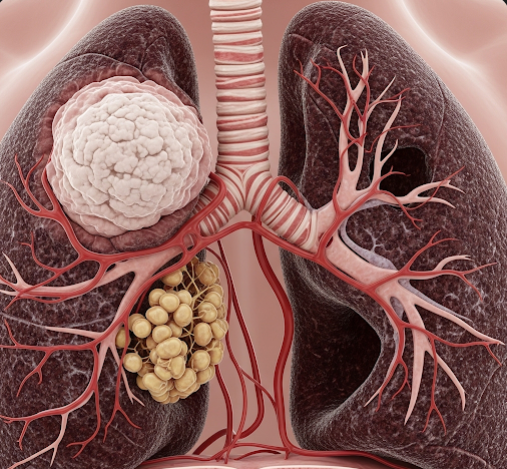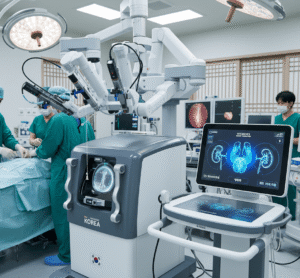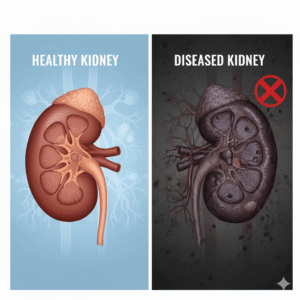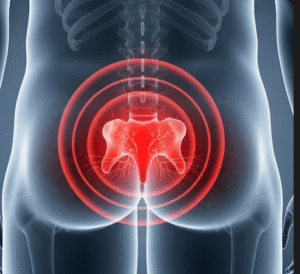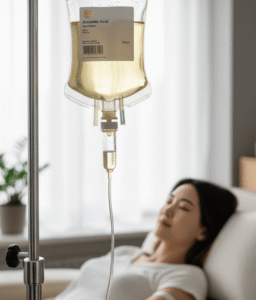Overview
Lung cancer is a malignant tumor originating in the lung tissues, primarily affecting the cells lining the airways. It is one of the leading causes of cancer-related deaths worldwide. Early detection and treatment are crucial to improve survival.
What Is Lung Cancer?
Lung cancer arises from uncontrolled growth of abnormal cells in the lung. It is classified mainly into two types: non-small cell lung cancer (NSCLC) and small cell lung cancer (SCLC), with different characteristics, treatment options, and prognoses.
Symptoms
- Persistent cough or change in cough pattern
- Coughing up blood (hemoptysis)
- Chest pain
- Shortness of breath
- Unexplained weight loss
- Fatigue
- Recurrent respiratory infections
- Hoarseness
- Swelling of the face or neck
Causes
- Tobacco smoking (primary cause)
- Exposure to secondhand smoke
- Exposure to radon gas, asbestos, and other carcinogens
- Air pollution
- Genetic predisposition
Risk Factors
- Smoking history
- Occupational exposure to carcinogens
- Family history of lung cancer
- Chronic lung diseases such as COPD
- Older age
Complications
- Metastasis to other organs such as brain, bones, and liver
- Respiratory failure
- Pleural effusion
- Superior vena cava syndrome
- Paraneoplastic syndromes
Prevention
- Avoid tobacco smoking and exposure to secondhand smoke
- Reduce exposure to occupational and environmental carcinogens
- Maintain a healthy lifestyle
- Early screening for high-risk individuals
Treatment Options in Korea
Korea offers comprehensive, state-of-the-art treatment for lung cancer:
- Surgery: Lobectomy, pneumonectomy, or segmentectomy for early-stage cancers.
- Radiation Therapy: Used alone or with chemotherapy, especially in inoperable cases.
- Chemotherapy: Systemic treatment for advanced or metastatic disease.
- Targeted Therapy: Drugs aimed at specific genetic mutations in cancer cells.
- Immunotherapy: Enhances the body’s immune response to fight cancer.
- Palliative Care: Symptom management and support for advanced stages.
- Advanced Diagnostics: High-resolution imaging, biopsy techniques, and molecular testing for personalized treatment.
Korean cancer centers provide multidisciplinary care with expert oncologists, surgeons, and support teams to optimize outcomes and quality of life.

